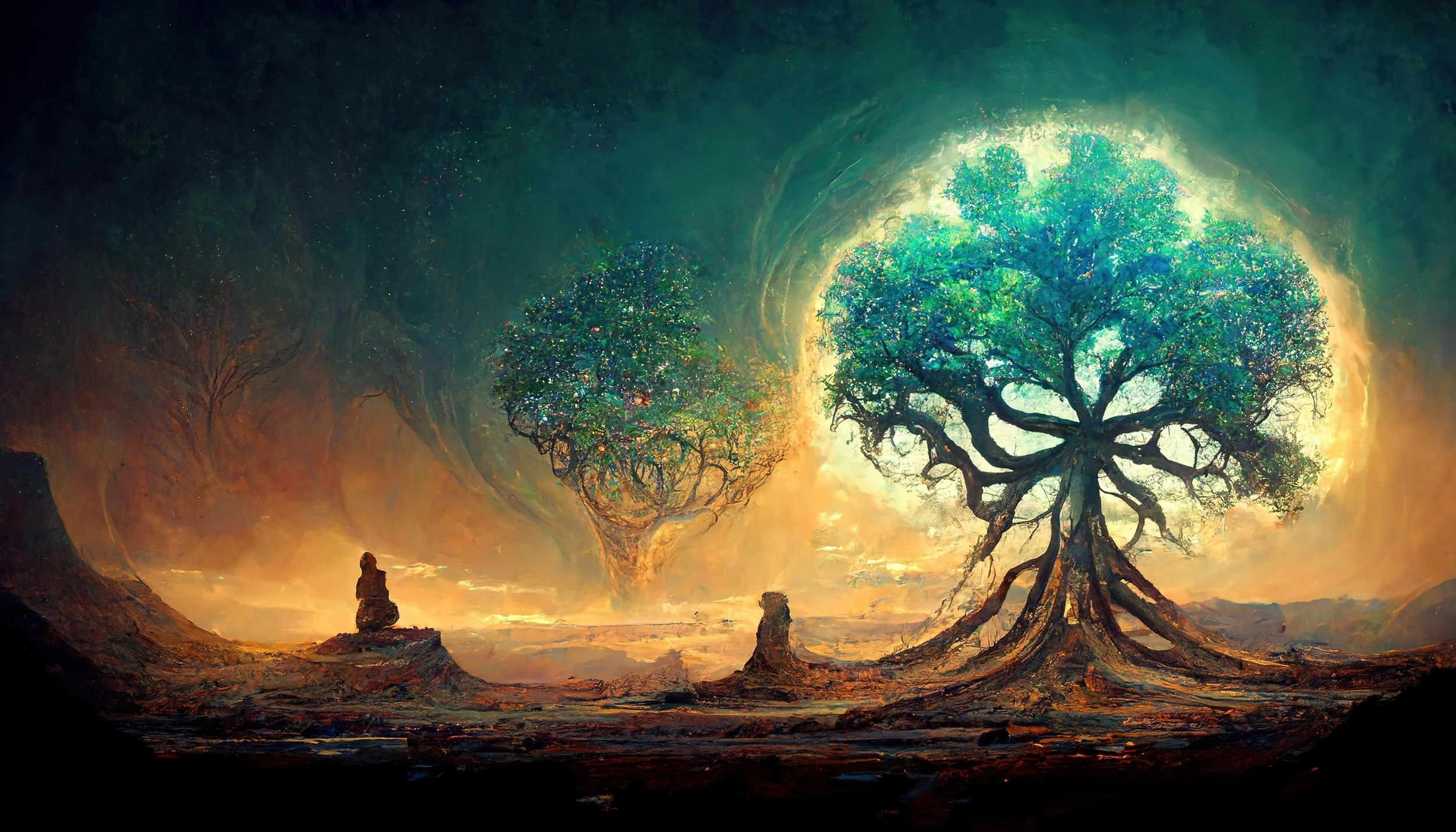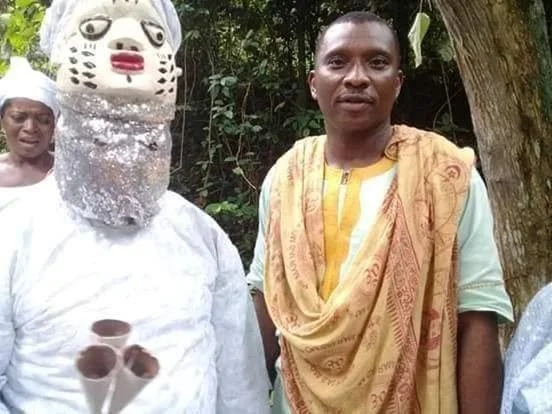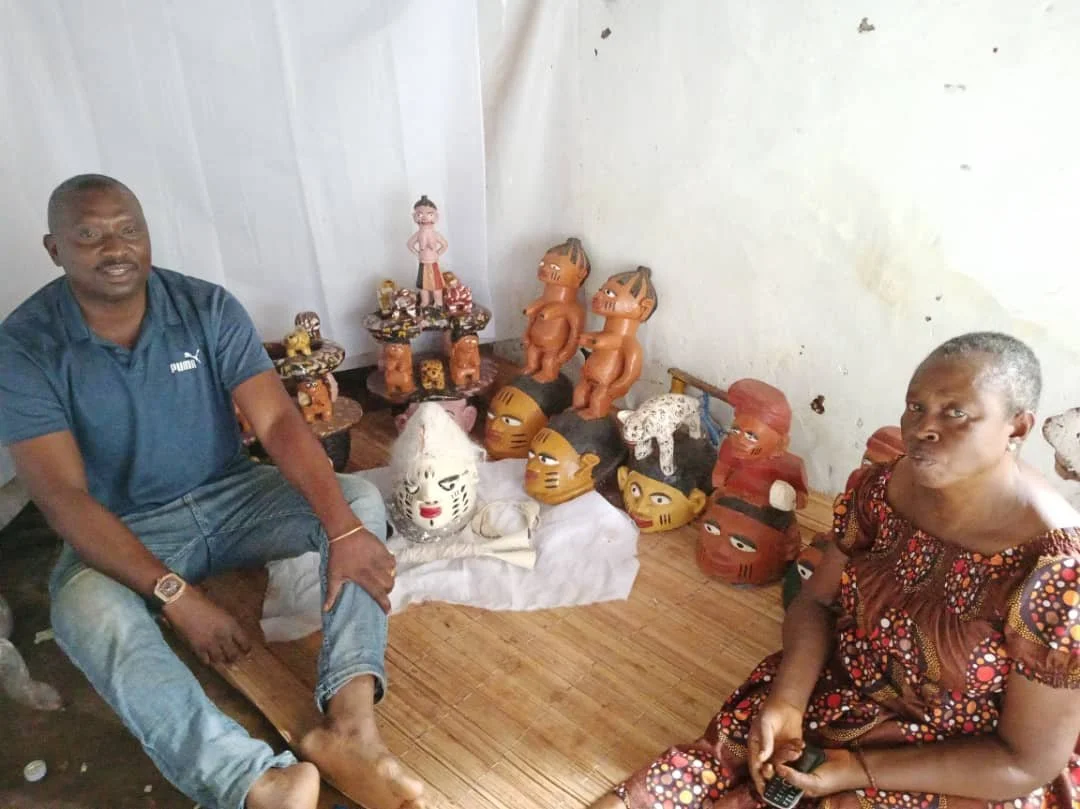
Frequently Asked Questions
Are classes with Solomon, or this Egbe, by invite only?
No, but being referred in by a network of trusted people studying with us already, is helpful. If we can't immediately identify who your community is, we will do our best to confirm their Orisa lineage so that you can participate, as we only teach people inside legitimate Olorisa communities.
Is this a traditional Egbe?
At this point no, this is not a formal Egbe, we are run by a few creative Olorisas doing admin, organization, content creation, etc, but it is a learning community and there is elder involvement for direction and advice. Baba Solomon and Tara came up with the name as a container as we transitioned from informal classes that began to morph and grow into something more.
How do I get into classes and how much are they?
Class entrance is based on application, a brief process to confirm your initiation or elders and then we put you on our mailing list to be informed about upcoming classes. Depending on what you are doing, classes run between about $45 to $70 for a single class. The Erindilogun is priced at 2 odu per month, 55$ a month, including active Q and A chats.
Who can take which classes, where should I start?
If you are totally new to learning Orisa tradition through an Isese/Esin Ibile lense, it’s strongly recommended to start with Intro to Ori/Ori Apere and Obi Divination. Even if you think you know a lot about these topics, these are good places to get grounded in Baba Solomon's teachings, vocabulary, and style. After that, Intro to Iyami and Intro to Egbe or Egungun are great classes, and from there things open up, if you are an Olorisa you are welcome to take the more advanced versions of the Ori or Iyami class or jump into Aje, Orisa of Wealth (which is also open to Aborisa/Ogberi).
Special Topics and Orisa classes: These classes are appropriate and enlightening for any ordained priest as well as people in the traditions who are working with elders, and have some ritual work done inside legitimate traditional houses. Some of the classes are for ordained priests only. Again, I personally think Introduction to Ori/Ori Apere and Obi Divination is a great place to start.
For the Erindilogun series, people with a minimum of 3 years of a legitimate ordination and ritual follow-up with a single set of elders who are training you, are welcome to apply. Occasionally in special circumstances, if someone's elder is also in class with them, or one's elder has already taken the series, iyawos or initiates with less than 3 years will be able to take this course with a referral/recommendation, and an elder vouching for them. If you don't know the names of post-initiation ritual follow-ups in your tradition, that is a good indicator for us that perhaps our Erindinlogun series is not the class for you. Similarly, If you don't reply to questions about your ordination/initiation, we can only assume you don't want to study seriously with Baba Solomon.
Why do you want to talk to my elders and what if I'm not with them anymore?
If you you are not ordained or have under 3-7 years of ordination, we want to check in briefly with initiating elders to confirm ordination and level of readiness for the material. This is because we don't want to create problems between initiates and their traditions or houses. We respect the hierarchies inherent to Orisa traditions and want to encourage and maintain good relationships in the wider Olorisa community. Some of the material presented will be different than what you may be learning with your community and we don't want to create an environment where younger people are challenging their elders' knowledge.
We also don't want to be in a position to be teaching what your initiating elders should be or could be teaching but for some reason, unknown to us, are not. Erindilogun in particular is taught as an adjunct to deepen existing understandings, not as a beginner class that will teach you how to read the shells. Class acceptance, in cases of splits from houses or an elder having passed on, are considered on a case-by-case basis. If you have been referred to class by someone already studying with us, please let us know. It’s been through trial and error that we've come to these standards and we hope they will be respected.
Why do you have a vetting process? What are your standards?
Basically, we are trying to not make more messes than are already out there in the world of Orisa traditions, we want to be a force for clarity, not confusion. While each tradition that studies within the umbrella of this Egbe is unique, there are some basic standards that are common across the board. Ordination in Nigeria, Cuban and Brazilian traditions for Orisa are very similar and have rough equivalencies. In all 3 places, one also finds that there are parallel ceremonial follow-ups to progress within, in terms of priesthoods and gaining ritual license to do spiritual work for people. We choose to err on the side of caution due to rampant charlatanism and fraud inside the Orisa community. In order for it to feel safe in terms of participation in group Q and A, vetting is required. Additionally, we need to check people out so that abusive or unethical individuals do not enter into the learning community. No one is obliged to give away their personal information and the Egbe is not obliged to teach everyone that comes to us.
We want to know who our students are as any responsible school-like setting. In traditional African spirituality, initiatory credentials refer to the knowledge, skills, and experiences that a student acquires during the process of initiation. These credentials are often considered sacred and are passed down from generation to generation through a lineage of elders.
It is important for Egbe Imodoye Orisa to know the initiatory credentials of a student, especially where the secrecy of rituals are concerned, for several reasons:
Maintaining the integrity of the tradition: Traditional African spirituality places great emphasis on maintaining the integrity of the spiritual tradition. This includes preserving the knowledge and practices that have been passed down through the generations. By ensuring that students have the necessary initiatory credentials (follow-ups), we can help maintain the integrity of the tradition.
Protecting the student: The process of initiation into a traditional African spiritual system can be intense and may involve experiences that are challenging or even dangerous. By knowing the initiatory credentials of a student, we can ensure that the student is prepared for the experience and can provide support and guidance as needed.
Upholding the ethical standards of the tradition: Traditional African spirituality is often based on a set of ethical standards that guide behavior and relationships. By knowing the initiatory credentials of a student, we can ensure that the student is aware of and committed to upholding these standards.
Ensuring the continuity of the tradition: Traditional African spirituality is a living tradition that is passed down from generation to generation. By knowing the initiatory credentials of a student, we can ensure that the student is prepared to pass on the knowledge and practices to future generations in a responsible way.
Can my ile take a class together?
Your ile is welcome to enroll in a class together, at the same time, in fact, we encourage that, but at this time we are prioritizing classes and questions and answer chat groups that bring Olorisas together, across houses and across traditions, so classes are not for private groups.
What if I have an idea for a class?
That's great! Please email us any ideas (or questions about particular classes) we are currently developing multiple classes and your idea may be in the works.
Does Baba Solomon do cowrie shell consults (idasa) aka readings?
Yes, he does and if you want us to put you in contact with him for them, please let us know and we'll make the introduction. We do not handle the money (via transfer to Nigeria) or scheduling of Baba's readings.
Can you recommend me to a good house or cowrie shell (erindinlogun) diviner or Orisa house here in the U.S?
Yes, we can, if we know of good, trustworthy people in your area that can read for you and offer spiritual guidance and care, we are happy to pass that info along.









